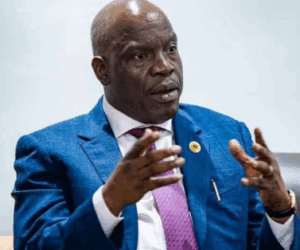1
ARIWOOLA SAMUEL AKINWALE
A wave of public outrage followed the recently published list of beneficiaries of the prerogative of mercy granted by President Bola Ahmed Tinubu. The uproar stemmed from the composition of the list, with many social commentators raising objections about the character of some of the candidates—most notably, Maryam Sanda.
Her inclusion was seen as an affront to truth and a disservice to justice. Among the many responses to this outrage, one piece stood out: Mr. Sam Omatseye’s column in The Nation newspaper, titled “Prerogative of Revenge.” In it, he defended the composition of the list. Mr. Omatseye’s view deserves attention, not only for its content but because it often reflects the unofficial stance of the presidential circle, given his proximity to that office.
He raised two main arguments.
First, he wrote: “One, the prerogative means it is a special power granted by the law. This means the president can exercise it without being questioned.” While he is partially correct—the prerogative is indeed a legal power—the notion that it is beyond public scrutiny is flawed. The public has the right to speak, even if the president has the final say. Moreover, the president’s exercise of this power is contingent upon due consultation with the Council of State.
Second, he argued: “Two, mercy also means the beneficiary (speaking of Maryam Sanda) is not innocent. Mercy is for the sinner, not even the sinned against. In his (the president’s) case, he set up a committee under the Attorney General, Lateef Fagbemi, which produced a list of 175 citizens.” However, mercy is not simply for the sinner—it is for the repentant sinner. Mr. Omatseye’s biblical references overlook a crucial point: every time Christ extended mercy, it was accompanied by a call to repentance—“Go and sin no more.” This conditional aspect of mercy seems to have escaped the writer.
He further contended: “Those who know her (Maryam) say she has shown remorse. If justice is revenge, then we are overlooking another definition of mercy— that of mercy as a rescue effort. Shall we destroy the mother and her two children? Or shall we save the children by pardoning a possibly repentant mother?” If these are the grounds for mercy, then every nursing mother in our correctional facilities deserves the same consideration. Mercy without evidence of genuine remorse or rehabilitation becomes indistinguishable from impunity.
Mr. Omatseye accused critics of seeking revenge. But the public is not a party to the crime—it is a neutral observer calling for social justice. Justice, ideally, should be retributive, punitive, deterrent, and correctional. Ignoring these principles fosters lawlessness and undermines social order.
This is the crux of the Maryam Sanda case. Should we rely on the testimony of acquaintances and the endorsement of an aging father-in-law who only entered the conversation after public backlash? The family of the deceased is calling for justice. As an observer, I acknowledge that the father of the deceased was seen pleading for mercy for the convicted, but to many, it echoed the voice of Esau. Given the reported nature of his relationship with his son, his plea raises questions.
There is a clear trust deficit between the public and the authorities. What’s at stake is the sanctity of the process and the integrity of the presidential prerogative.
Why does our prerogative of mercy always favor high-profile names? Under President Muhammadu Buhari, we saw former governors Jolly Nyame and Joshua Dariye of Taraba and Plateau States respectively receive executive pardons—despite having looted their states while in office.
Returning to Mr. Omatseye’s rhetorical question: “Shall we destroy the mother and her two children?” No—we are safeguarding those children by ensuring their mother remains under penitence. Their safety is compromised under the care of someone who killed their father in a fit of rage.
The ongoing debates around this case are a test of whether our institutions can command the moral authority to pardon without appearing to betray the very justice they are meant to uphold.
*Akinwale writes from Lagos via [email protected]








